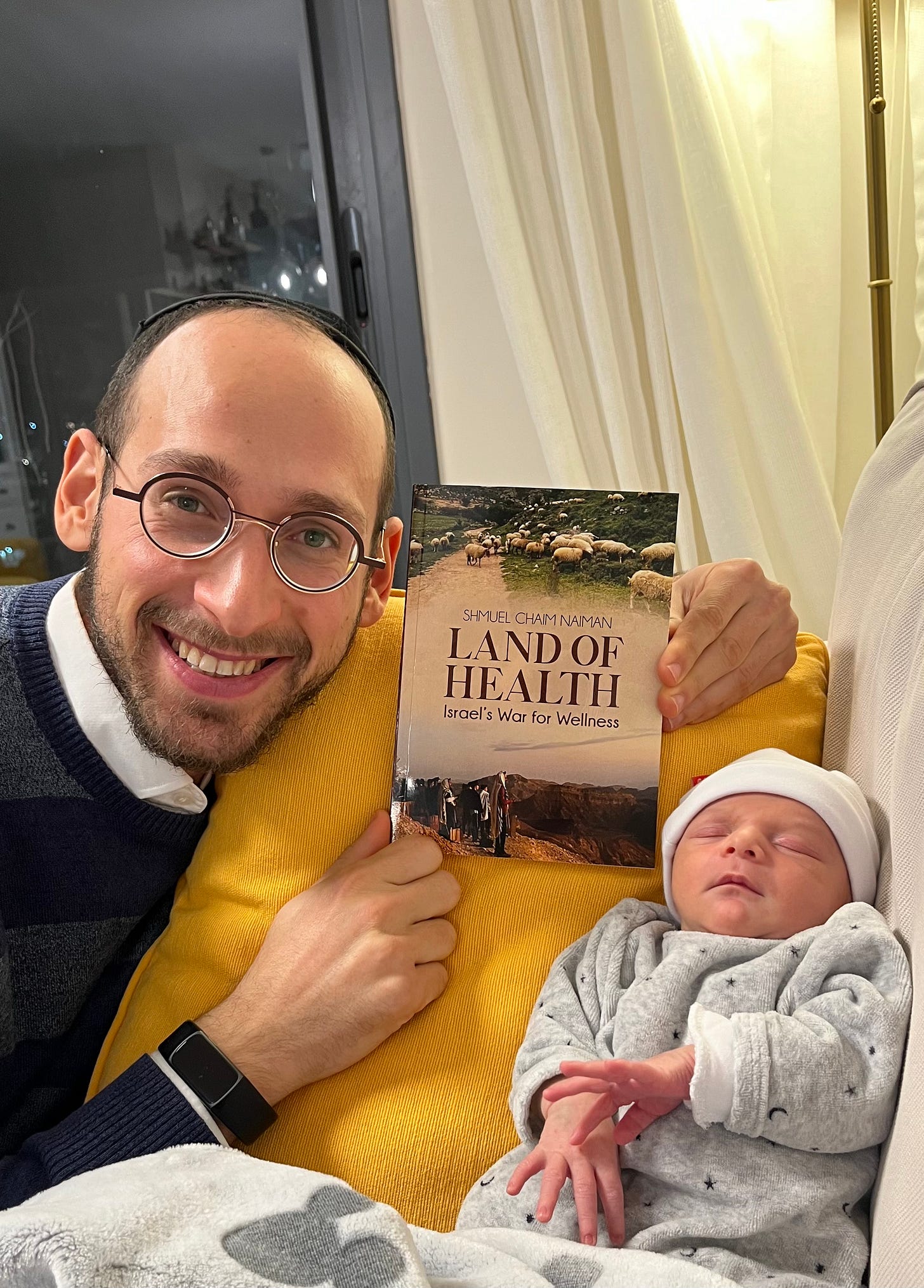Dear Healthy Jew,
Last Monday afternoon, this little prince joined our family.
But apparently he forgot that in this world of mortals we live by breathing, because he promptly popped a hole in his lung. Thankfully, after a few days in the ICU he figured things out, and the wonderful doctors and nurses of Tel Hashomer Hospital sent him on his way.
In the meanwhile, I managed to come down with my first bronchitis experience in a decade, followed by our two other kids, and then, finally, my wife.
By day 5 of this little guy’s life, the tables had turned: he was doing just dandy, while the rest of us were still sniffling along with fevers.

That was our family’s recent little crisis. Nothing terrible tragic; many people would pay for it a fortune. But putting things into perspective only goes so far. In real time, these were challenging days, and I often felt acutely distressed.
I’ve had ample opportunities to practice many of the healthy living strategies for times of crisis that I wrote about in my new book, Land of Health: Israel’s War for Wellness.
Some examples I’ve been working on:
Lots of short cry-prayers (Chapter 12)
Fasting every night (Chapter 13)
Staying physically active, going from here to there. (Chapter 14)
Listing my fears and gratitudes (Chapter 15).
Yet none of these things left me feeling particularly inspired, focused, or thriving.
And all my profound insights about the Land of Health completely slipped my mind while I was shuttling two sick kids to visit their sick mother but not their little sick brother because he was stuck inside a beeping box.
There’s nothing wrong with any of this. It’s exactly how crises work.
Crises are designed to snatch us out of the illusion of control over our lives, health, feelings, and time. Whether the crisis is big or small, we feel detached and distressed, unable to deal with more than the barest necessities.
Healthy living during crises isn’t in acting and feeling like regular, perhaps just a little busier. Rather, success means putting one step before the next, slowly trudging forward.
As I often explain in these pages, life lived well is a journey from here to there, that is the process of traveling with our bodies and souls to a destination that lies beyond our current selves.
This journey of life takes many forms.
Brisk walking is the centerpiece of life’s journey. Our bodies are healthy when we are Walkers; we’re spiritually healthy when we “walk in God’s ways” of balanced character traits.
Running (and other forms of vigorous exercise) are the “to” of “from here to there,” when we’re fully immersed in the process, and all distractions drop away.
Trudging is at the other end of the journey’s scale, when we’re stuck in the mud or snow of life, plodding along the best we can. We’ll often slip, get up, and continue. Two steps forward, one step back.
The image of trudging has always been close to my heart. The tenacity and consistency attract me more than inspired feats of courage that quickly flame out.
When my journey of life is over, I’d rather say I trudged through its many storms than sport a gold marathon medal that I won decades ago. I want to have showed up every day for life, giving my imperfect best to getting the next decision or action right.
That’s what I’ve been trying to do this past week, anyway.
Thank you for reading Healthy Jew.
Here are 2 great paths to continue the journey:
Also check out this intro and index to explore hundreds of posts about our 3 Healthy Jew topics: Wellness with Wisdom, Land of Life (Israel), and Sensible Spirituality.
Finally, always feel free to reach out here with any comments, questions, or complaints:
I look forward to hearing from you!
Be well,
Rabbi Shmuel Chaim Naiman









Mazel tov! From you most dedicated and avid reader!
Mazel tov! Thank you so much for showing us what “ordinary” life feels like, and that accepting it is extraordinary.